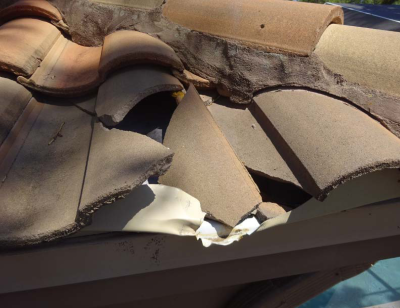Introduction
If you’re a homeowner in Florida, especially in places like Pinellas, Tampa, or Pasco, you’ve probably heard the term Roof Certification thrown around. But what does it actually mean?
Whether you’re renewing your home insurance, buying a new place, or just staying ahead of potential roof issues, getting a Roof Certification Pinellas or Roof Certification Tampa isn’t just a good idea—it’s often a requirement. But don’t worry! We’re here to walk you through everything you need to know about this process in a fun, simple, no-jargon kind of way.
What Is a Roof Certification?
Breaking It Down
A Roof Certification is a professional document issued by a licensed inspector after thoroughly evaluating your roof. It essentially says, “Yep, this roof is in good shape and should last at least five more years.”
It’s not just about checking boxes—insurance companies require it to continue covering your home, especially if your roof has aged past a certain point.
Who Needs It?
-
Homeowners renewing insurance
-
Buyers during real estate transactions
-
Owners of homes over 25–50 years old (depending on roof type)
-
Anyone without proof of roof replacement
Why Roof Certification Matters in Florida
Florida isn’t exactly gentle on roofs. Between hurricanes, humidity, and blazing sun, your roof takes a beating. That’s why insurance companies, especially Citizens Insurance, require proof that your roof still has enough life left in it.
A valid Roof Certification in Pinellas, Tampa, or Pasco can be the difference between keeping or losing your insurance coverage.
Roof Age Guidelines in Florida
Different roofing materials age differently, and insurance providers have strict guidelines based on your roof’s age:
Shingle Roofs
-
Certification required at 25 years or older
-
Must have 5+ years of usable life
Tile and Metal Roofs
-
Certification needed at 50 years or older
-
These materials last longer but still need evaluation
Mobile Homes
-
If your mobile home is 50+ years old, certification is a must
-
Especially if there’s no proof of replacement
What’s Included in a Roof Certification Inspection?
Think of it like a physical check-up… for your house.
Visual Damage Assessment
The inspector checks for:
-
Cracks
-
Curling shingles
-
Missing or broken tiles
-
Granule loss
Structural Check
They’ll assess the integrity of the decking, ensuring there are no soft spots or water damage.
Material Health
They inspect whether the roofing materials are holding strong or showing signs of breakdown.
Life Expectancy Estimate
If your roof has less than 5 years of life, it’s unlikely to pass. That’s the magic number!
Roof Certification Pinellas: Local Focus
Pinellas County homes are especially at risk due to coastal exposure. Frequent salt air, winds, and storms accelerate roof aging. That’s why Roof Certification Pinellas is a critical part of homeownership here.
Whether you’re in Clearwater, Largo, or St. Pete, getting your roof certified could save you from insurance cancellation.
Roof Certification Tampa: Why It’s a Must
Tampa sees its share of tropical weather, but it also has a ton of older homes. That’s where Roof Certification Tampa comes into play.
If your home is older and you can’t produce a building permit for roof replacement, your insurer will almost definitely ask for a roof certification.
Roof Certification Pasco: Don’t Get Caught Off Guard
Pasco County may be more inland, but it’s still very much on insurers’ radar. If your home is located in areas like Wesley Chapel, Land O’ Lakes, or New Port Richey, don’t assume you’re off the hook.
If your home is nearing the 25- or 50-year threshold, go ahead and get that Roof Certification Pasco completed to avoid unexpected insurance issues.
Top Reasons a Roof Fails Certification
-
Cracked or curling shingles
-
Visible leaks or water stains
-
Missing tiles or loose flashing
-
Exposed asphalt or felt
-
Decking feels soft or spongy
-
Hail or storm damage
-
Life expectancy under 5 years
Fail any one of these? You might need repairs—or worse, a full roof replacement.
What Happens If You Fail the Inspection?
Don’t Panic!
A failed certification isn’t the end of the world. It just means your roof needs some TLC.
You’ll usually be advised to either:
-
Make minor repairs (e.g., fix a few shingles)
-
Schedule a full roof replacement
-
Submit proof of repairs or replacements to your insurer
Once you’ve addressed the issues, simply schedule another inspection.
Roof Certification vs. Roof Inspection: Know the Difference
A Roof Certification is about proving lifespan and condition for insurance. It’s usually quick and standardized.
A full Roof Inspection digs deeper. It checks flashing, attic insulation, moisture, ventilation—you name it. Great if you’re buying a home or concerned about long-term performance.
Why You Should Hire a Certified Inspector Not a Roofer
Here’s a big one that many people overlook…
Inspectors Are Unbiased
Inspectors like those at Inspect Florida have no stake in repairs. They’re not trying to sell you anything—they just report the facts.
Roofers May Have Conflict of Interest
Some roofers may exaggerate damage to get repair jobs. A neutral home inspector gives you peace of mind without the sales pitch.
How Much Does Roof Certification Cost?
At Inspect Florida, you can get a Roof Certification Inspection for just $75. That’s it—flat fee, no surprises.
When you consider that this tiny investment could save your insurance policy, it’s honestly a no-brainer.
Service Areas Covered
If you’re wondering whether your area is covered, here’s where Inspect Florida operates:
-
Pinellas County: St. Pete, Clearwater, Largo, Palm Harbor
-
Hillsborough County: Tampa, Brandon, Riverview
-
Pasco County: Wesley Chapel, Zephyrhills, New Port Richey
-
Hernando County: Brooksville, Spring Hill
Wherever you live in the Tampa Bay area—they’ve got you covered.
Documents You Might Need
-
Previous roof permit (if available)
-
Inspector’s report after certification
-
Photos of your roof (some insurers require them)
No permit? No problem. That’s what the certification is for.
Tips to Help You Pass Roof Certification
Want to ace your inspection? Try these quick tips:
-
Clean debris and leaves off the roof
-
Fix missing shingles or cracked tiles
-
Check for water stains inside your attic
-
Clear gutters and downspouts
-
Patch minor damage before scheduling the inspection
Common Myths About Roof Certification
“Only Old Homes Need It”
Nope! Even newer homes can suffer storm damage that triggers the need for inspection.
“It’s Just a Formality”
Insurance companies take this seriously. One leak or weak spot and your policy might be toast.
Conclusion
Whether you’re in Pinellas, Tampa, or Pasco, getting your Roof Certification isn’t just smart it’s essential.
For just $75, you can avoid insurance drama, protect your investment, and gain peace of mind. Don’t wait until your renewal notice turns into a cancellation. Be proactive. Get certified. Sleep better.
And remember Inspect Florida has your back every step of the way.
FAQs
1. Can I get a Roof Certification without proof of roof replacement?
Absolutely. That’s one of the main reasons people get a roof certification—to verify condition in the absence of a permit.
2. Is Roof Certification required for every home?
No, but it’s often mandatory if your roof is older (25+ years for shingles, 50+ for tile/metal) or if your insurer requests it.
3. How long does a Roof Certification Inspection take?
Usually between 30–60 minutes, with reports delivered within a day in most cases.
4. Does Roof Certification guarantee my roof won’t have issues?
No, it’s not a warranty. It’s a snapshot of your roof’s current condition and life expectancy.
5. Can I use any inspector for Roof Certification in Tampa or Pinellas?
Technically yes, but using a licensed, certified home inspector like Inspect Florida ensures your report meets insurance requirements.




